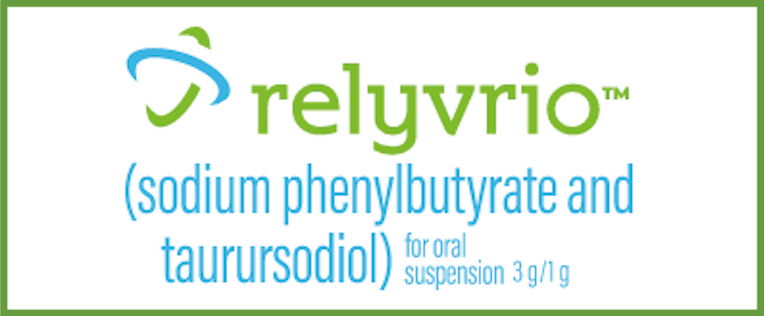News Team member Caroline Hansen reports that hospital closures across the United States threaten equitable healthcare access for rural populations and demand solutions.
The FDA Made a Huge Mistake Approving an Under-Researched, Expensive ALS Medication
The drug Relyvrio looked groundbreaking, but the details of its approval reveal faults in how the FDA evaluates new drugs
By Andrew Feld
If you have not been up to date on drug approvals, here are several major news headlines that were published recently: “ALS drug gets FDA approval despite uncertainty about effectiveness” (CNN), “ALS drug’s approval draws cheers from patients, questions from skeptics” (NPR). The treatment referenced in those articles is Amylyx Inc.’s AMX0045, also known as Relyvrio. A perceived groundbreaking achievement in the fight against ALS, yet people are up in arms over whether the FDA should have approved it.
“FDA approved AMX0035, a new treatment that has been shown to slow the progression of ALS and extend life,” tweeted The ALS Association, a nonprofit organization that provides care for ALS patients across the U.S. “This is an amazing development in the fight against ALS, and a meaningful win for the entire ALS community who worked tirelessly to make this happen.”
The enthusiastic statement followed FDA’s September 29th press release announcing it was granting Relyvrio traditional approval. But, there are many reasons to feel uneasy about what this approval means for patients in both the short and long term. The drug’s limited efficacy, harmful impact on future drug discovery, and extremely high cost outweigh the benefits of treating today’s ALS patients.

To understand this controversy, we must first examine Relyvrio’s unconventional approval: FDA granted it traditional approval based on only one trial rather than the two generally required. Typically, FDA grants new medical products either a traditional or accelerated approval. Both pathways require sufficient evidence from at least two clinical trials, however a couple differences exist between the two.
First, drugs earning traditional approval must show evidence of improving clinical endpoints, — measurements of how patients feel, function or survive. In the case of cancer, the most obvious example is survival. Accelerated approvals, on the other hand, only require surrogate endpoints, which indirectly relate to a clinical endpoint. For cancer, this could be the shrinkage of a tumor.
Second, FDA requires drugs that receive accelerated approval to undergo a confirmatory trial after the drug hits the market, where if the results differ from the initial study, FDA can pull the drug off shelves. No such requirement exists for traditionally approved drugs.
Relyvrio used a clinical endpoint: the Amyotrophic Lateral Sclerosis Functional Rating Scale–Revised, a scale that rates a patient’s function for tasks such as walking, speaking, and salivating. However, researchers completed the initial 24 week double blind trial, and then immediately afterwards, gave the drug to all study participants, including those in the placebo. So rather than complete two separate trials, researchers essentially completed one and a half.
The trial was not large and the evidence was not “substantial,” yet the FDA still deviated from their standard protocols. For example, the scale rates functionality from zero to four for twelve different categories. Total scores range from 0 (meaning they are severely disabled in every category) to 48 (meaning they have normal function in all areas).
The difference between those given Relyvrio versus placebo was just .42 points per month. That translates into a 2.5 point improvement on a 48 point scale over the course of the six month study.
“Imagine if you’re a patient with some terrible disease,” said Jonathan Darrow, assistant professor of medicine at Harvard Medical School. “Now, in the case of ALS, you may not have 20 or 30 years to wait for the next drug to come out. But if you think of a whole group of people, that now have it or will have it in five or 10 or 20 years. What you really want is not an incredibly expensive drug, that gives you one point on a 40 point scale. You want a cure.”

Don’t get me wrong, the incremental improvement is meaningful, especially to those currently living with the illness. But, drug approvals do not occur in a vacuum; they have effects beyond their immediate scope. Therefore, we cannot simply look at the results of the trial to gauge whether the FDA made the right decision, but what long term effects such an approval may lead to.
One of those long lasting effects may be that pharmaceutical companies slack off when it comes to discovering the specifics of a drug.
“You’re kind of signaling to the industry that you don’t have to prove much in order to get your drug approved for a serious disease with an unmet need,” said Holly Fernandez Lynch, associate professor of medical ethics and health policy at the University of Pennsylvania. “And that can be bad for patients in the long run, because as patients what we really want are drugs that we have confidence, that we know work, and that are strong treatment options for us.”
Another long term consequence is reinforcing the idea that the quantity of evidence supporting a drug supersedes its effectiveness. We live in a world that praises a drug conferring very little benefit so long as many studies agree its effective. But this logic precludes investment in, and therefore discovery, of highly effective treatments.
The numbers back up this intuition. A 2019 British Medical Journal study examined drug approvals dating back to the 1970s and found that “only a limited number of new drugs provide real advances over existing drugs. Most studies put the proportion of true innovation at under 15%, with no clear improvement over time.” (BMJ)
“We can ensure that every drug has a billion dollars that goes into studying it,” said Darrow. “But if the benefit is .0001% it doesn’t matter how much evidence there is. And unfortunately, the system we have emphasizes evidence quality over the amount of efficacy. If you look at independent reviews, they are all in agreement that the large majority of drugs offer little or no benefit over previously approved therapies. So in my view there’s a gross misdirection of resources toward drugs.”

The FDA perpetuates that misdirection each and every time it approves a less effective drug. And it disincentives pharmaceutical companies from discovering the truly life-changing cures that patients really want.
What’s even worse is that Amylyx is pricing their drug like it’s as revolutionary as the discovery of Penicillin was. A year’s supply costs $158,000. That price, albeit extremely high, would seem more reasonable if the drug showed immense benefits in multiple trials. But that just has not been the case.
The Institute for Economic and Clinical Review, a nonprofit organization that researches all available evidence to discover the economic value of various drugs, states that Relyvrio achieves “cost-effectiveness if priced between $9,100 – $30,700 per year” (ICER).
Unfortunately, the current price for the drug is five times more than that estimate. So if ALS patients are going to use the drug, they are going to have to overpay — and spending such a large sum of money brings up the concept of opportunity cost – the idea that choosing one activity means you lose the ability to do an alternative option.
“If that money were not spent on this drug, what would it be spent on?,” said Darrow. “And could that have a bigger positive impact on these patients’ lives?”
$158,000 a year is a lot of money, and undoubtedly could benefit the patient in ways other than acquiring an expensive medication. Maybe the patient wants a new power wheelchair to make each day more comfortable, or maybe they want to finally take the trip they have always talked about. Regardless of what alternative that money is spent on, the point is that as the drug becomes more expensive, the number of alternatives increases.
And even if the patient and their family agree the chance at extending life is worth that sum of money, there is no guarantee the patient realizes any of the drug’s benefits because Relyvrio has undergone only one study.
The other possibility is that insurance companies cover the cost. Unfortunately, they are a business, and if ALS patients start using this expensive drug, the insurance companies will pass those costs onto other consumers in the form of rising premiums. For context, $158,000 multiplied by the 16,000 people living with ALS in the U.S. comes out to $2.5 billion annually — leaving no doubt that anyone on a health insurance plan would bear the brunt of Relyvrio’s cost.
Despite the many points laid out, some people may still argue that a patient with a life threatening illness has the right to try any medication, even if it may not be effective.

There are three responses to that belief. The first is that in all likelihood, they already can. The FDA has an expanded access program (also known as “compassionate use”) where patients with life threatening diseases can gain access to a non-FDA approved drug. The FDA approves 99% of applicants. What this means is that even if the FDA had not approved Relyvrio, ALS patients still could have accessed the drug. The problem is that the pharmaceutical company must agree to provide the drug to the individual for an agreed upon price.
The second hits on why the U.S. created a regulatory agency in the first place. The FDA adheres to strict regulations when considering approving a drug. Doing so signals to consumers that all drugs hitting the market meet the FDA’s definition of safe and effective. If these regulations become looser and FDA starts approving drugs falling below those standards, not only do patients face a safety risk, but public trust in FDA decreases.
And finally, any right to try arguments touches on a couple bioethical principles. On the one hand, patients have autonomy – that is, a right to choose what goes in their body. But, on the other hand, the FDA has an equal duty of nonmaleficence – that is to protect society from harmful products. Determining which one of these sides takes priority comes down to patients giving their informed consent. Unfortunately, many patients are not accurately informed about the medicine they want to take.
“The challenge in the real world is that patients don’t often have full information about the drugs,” said Harrow. “And that may be because there is not full information about the drugs at that point. [But] even if you get some information by reading everything that’s available, some information is going to be proprietary. When a company is developing a new drug, they’re not going to publish everything about it before it’s approved because they don’t want to give information to competitors.”
Relyvrio is a very new drug, so even if someone thinks they know all the risks, they likely do not. If the FDA still allows people to use the drug, that becomes highly unethical.
Ultimately, even though Relyvrio provides some immediate hope for ALS patients, the FDA made the wrong decision in approving the drug. The one trial does not provide strong enough results to break precedent. The approval supports the idea that small medical advancements are the gold standard. And the excessive cost burdens ALS patients as well as the community at large. Society must find a way to incentivize discovery of cost-effective cures.

